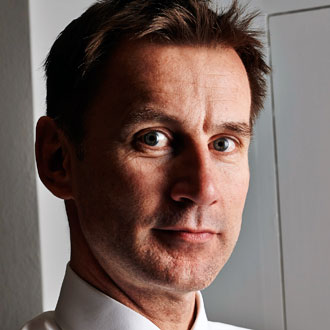Hunt: ‘I’ve yet to meet a doctor who doesn’t want seven-day working’

The health secretary has claimed that he has ‘yet to meet’ a doctor who is not in favour of weekend working, adding that the BMA is out of touch with its members for opposing the Government’s plans.
Speaking at an event at the King’s Fund today, Jeremy Hunt claimed that all the royal colleges supported seven-day working and he ‘can’t hide his frustration’ at the BMA’s stance.
He said today that he was planning to impose seven-day working on newly qualified hospital consultants, but acknowledged that seven-day GP services would be harder.
The Government was ‘starting to have a good dialogue with the GP profession about the best way to do that [seven-day working]’, he added.
However, the health secretary said: ‘My frustration isn’t with doctors. I’ve yet to meet a doctor who doesn’t want to move to seven-day working. They are all very enthusiastic, and the royal colleges support this, but I can’t hide my frustration with the BMA.’
Speaking at the King’s Fund event, Mr Hunt acknowledged that ‘a very big capacity problem’ meant his seven-day general practice plans faced ‘different problems’ but underlined that, despite this, it was ‘essential’ to introduce ‘a seven-day NHS across primary and secondary care’.
Despite the claim that the royal colleges support his plans, RCGP chair Dr Maureen Baker took a stronger tone by saying GPs are already ‘being pushed to our limits in trying to provide a safe five-day service’ and that the health secretary’s speech sounded ‘alarm bells’ for GPs.
Related articles
GPs told to inform patients of hospitals’ CQC ratings and waiting times
In full: Jeremy Hunt outlines his 25-year vision for the NHS
GP premises fund raided to boost seven-day access pilots
Quarter of PM’s seven-day GP access pilots have cut opening hours
Meanwhile, NHS England has identified the GP contract as a ‘constraint’ to the rollout of the Government’s seven-day working plan, an independent report into seven-day working has revealed.
The NHS Pay Review body’s report on seven-day working said: ‘NHS England told us they had identified a number of constraints, including Agenda for Change staff pay, consultant and GP contracts, and working time, which constrain staffing and create uplifts for weekend work, thus increasing the cost.’
A spokesperson for Mr Hunt said he ‘would not speculate on [GP contract] negotiations’ at this point in time.
GPC deputy chair Dr Richard Vautrey told Pulse that although every doctor works to ensure there is ‘24/7’ access to GP services, ‘very few see the need for a routine care service on a Sunday afternoon’.
He said: ‘We do have a good dialogue and relationship with the secretary of state and NHS England and are trying to encourage them to see that the way to deliver their seven-day agenda is to build on and invest in the current urgent care service rather than creating a parallel service that ultimately undermine each other leading to poorer care for the patients in the area.’
He added: ‘The GP contract is not a block to change but, if invested in properly, provides a solid foundation on which to build.’
Pulse July survey
Take our July 2025 survey to potentially win £1.000 worth of tokens












